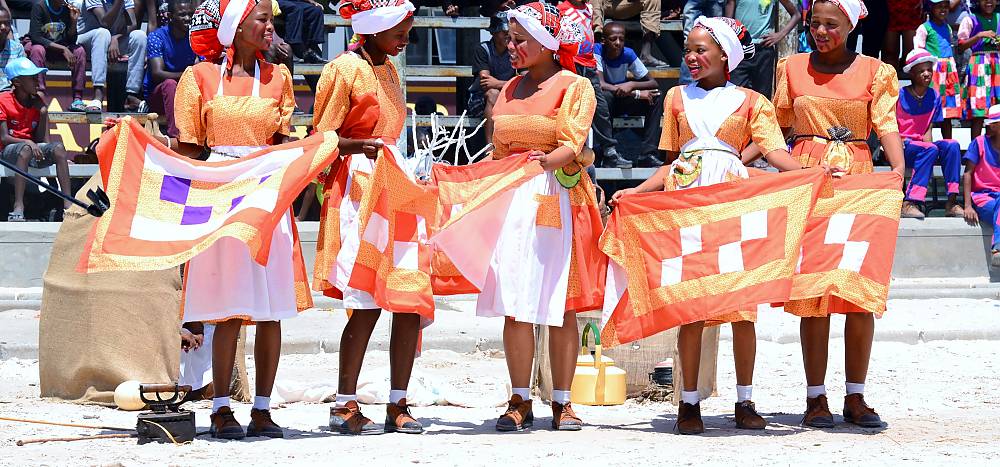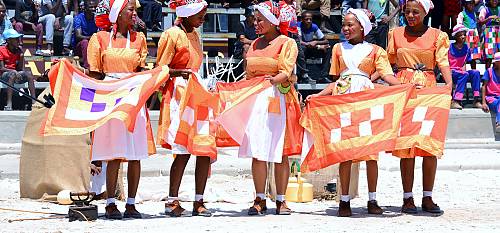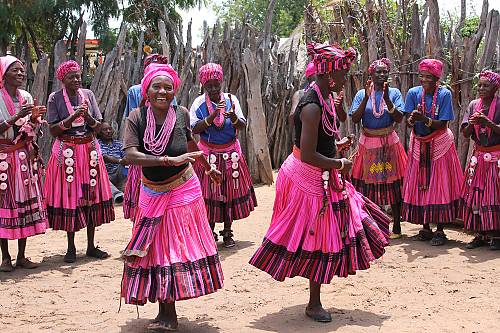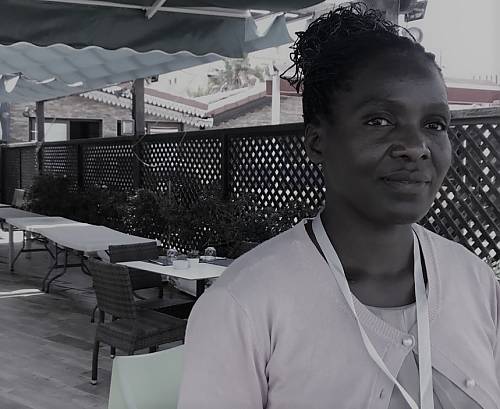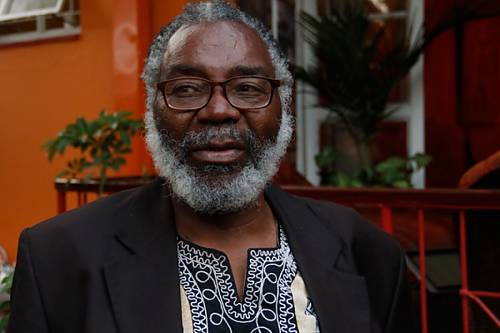Stakeholders from Namibia and Zimbabwe explored how to better integrate living heritage into the education system by participating in two UNESCO workshops held in both countries in January and February 2024, as part of the project Safeguarding Intangible Cultural Heritage in basic education in Namibia and Zimbabwe. These workshops targeted policy and curriculum developers, teachers, and school administrators.
Following this training, 24 schools part of the project across Namibia and Zimbabwe designed their whole-school action plans to integrate living heritage into classrooms and curricula. Participating teachers were also trained on developing lesson plans integrating living heritage into different learning subjects.
Going forward, the next project phase will consist of a six-month pilot implementation period - during which school administrators, teachers, and students as well as bearers from local communities will jointly pilot lessons to teach and learn with living heritage. In parallel, a methodological and formative assessment framework is under preparation to support curriculum developers on how to effectively integrate living heritage in their local educational content and material. Based on this framework and pilot activities, a policy brief will be presented to the Ministers of Education in both countries at a later stage.
Proyecto:
-
Safeguarding Intangible Cultural Heritage in basic education in Namibia and Zimbabwe (1 de junio de 2022 – 1 de junio de 2024)
